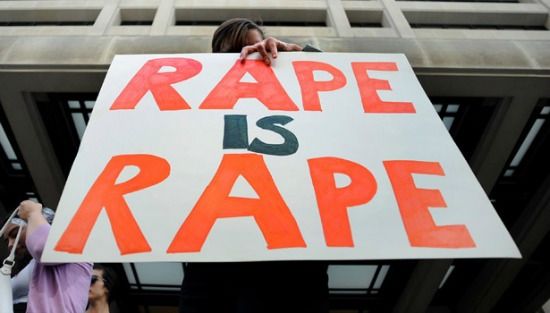Two bills targeting rape pass Legislature, head to Gov. Brown’s desk
by James Poulos | September 7, 2016 8:17 am
 A series of high profile rape accusations led California lawmakers to pass new legislation designed to remove a judge’s discretion in certain cases and to lift the burden on victims to bring suit before the law allows the validity of their claims to lapse over time. But questions immediately rose as to whether the approach might have significant unintended consequences.
A series of high profile rape accusations led California lawmakers to pass new legislation designed to remove a judge’s discretion in certain cases and to lift the burden on victims to bring suit before the law allows the validity of their claims to lapse over time. But questions immediately rose as to whether the approach might have significant unintended consequences.
Constraining judges
Assembly Bill 2888, passed in response to the controversy around sentencing leniency in the case of former Stanford University swimmer Brock Turner, bars courts “from granting probation or suspending the execution or imposition of a sentence if a person is convicted of rape” or related acts “if the victim was either unconscious or incapable of giving consent due to intoxication,” according[1] to the legislative counsel’s digest. “Turner was sentenced to six months in county jail (that the law only required him to serve three of with good behavior, which was exactly what happened), three years of probation, and a sex offender management program,” as Bridgette Dunlap, a California women’s rights attorney, recalled[2] in Rolling Stone. “He will have to register as a sex offender for the rest of his life.”
But as Dunlap observed, AB2888 was written in a way that could worsen the pronounced disadvantage that some defendants already suffer in court. While Turner was able to avail himself of a robust defense, the bill passed in response to Judge Aaron Persky’s exercise of discretion “will inevitably have a disproportionate impact on the same people mandatory minimum laws generally do — poor people of color,” Dunlap suggested. “The likely consequences of this kind of tough-on-crime response to a high profile case seen as a symbol of a larger problem should concern two groups in particular: Californians and feminists.”
The dilemma playing out, especially on the political left, raised questions as to how Gov. Jerry Brown, famous for reigning in some of Sacramento’s hastier actions, would react. “A spokesman for the governor declined on Tuesday to comment on his plans for the bill, adding that Mr. Brown has until the end of September to sign or veto it,” the New York Times reported[3].
“That Legislature’s action came less than a week after the Santa Clara County Superior Court announced that Judge Persky would stop hearing criminal cases and handle civil cases instead, effective Sept. 6. He had asked for the transfer, the court’s presiding judge said. Now, Judge Persky is in a battle to retain his position. A petition seeking hearings to impeach him has collected 1.3 million signatures since it was started three months. The movement to remove him has also raised more than $250,000.”
Stopping the clock
At the same time, Brown must pass judgment on a second piece of rape-related legislation. The governor, “who has vetoed bills to extend legal deadlines for filing lawsuits over child sex abuse, must now decide whether to abolish time limits for charging someone with rape, sodomy, lewd or lascivious acts, oral copulation, and continuous sex abuse of a child,” according[4] to the Los Angeles Times. “Most of the crimes now carry a 10-year statute of limitation.” The bill making those changes was passed in response to the allegations of rape and sexual assault directed at Bill Cosby by dozens of women over a period of decades.
“Under the state’s current law, rape and felony sex crimes must be tried within 10 years, unless DNA evidence comes to light after that time period,” as New York Magazine noted[5]. “And sex crimes against children younger than 18 must be prosecuted before the victim turns 40. Cosby stands accused of assaulting more than 35 women in the ‘70s, ‘80s and ‘90s, but in several of their cases, the statue of limitations has expired.”
- according: https://leginfo.legislature.ca.gov/faces/billTextClient.xhtml?bill_id=201520160AB2888
- recalled: http://www.rollingstone.com/culture/news/how-californias-new-rape-law-could-be-a-step-backward-w437373
- reported: http://www.nytimes.com/2016/09/01/us/as-brock-turner-is-set-to-be-freed-friday-california-bill-aims-for-harsher-penalties-for-sexual-assault.html?_r=0
- according: http://www.latimes.com/local/lanow/la-me-sex-crimes-law-20160901-snap-story.html
- noted: http://nymag.com/thecut/2016/08/california-removes-time-limit-on-rape-cases.html
Source URL: https://calwatchdog.com/2016/09/07/two-bills-targeting-rape-pass-legislature-head-gov-browns-desk/